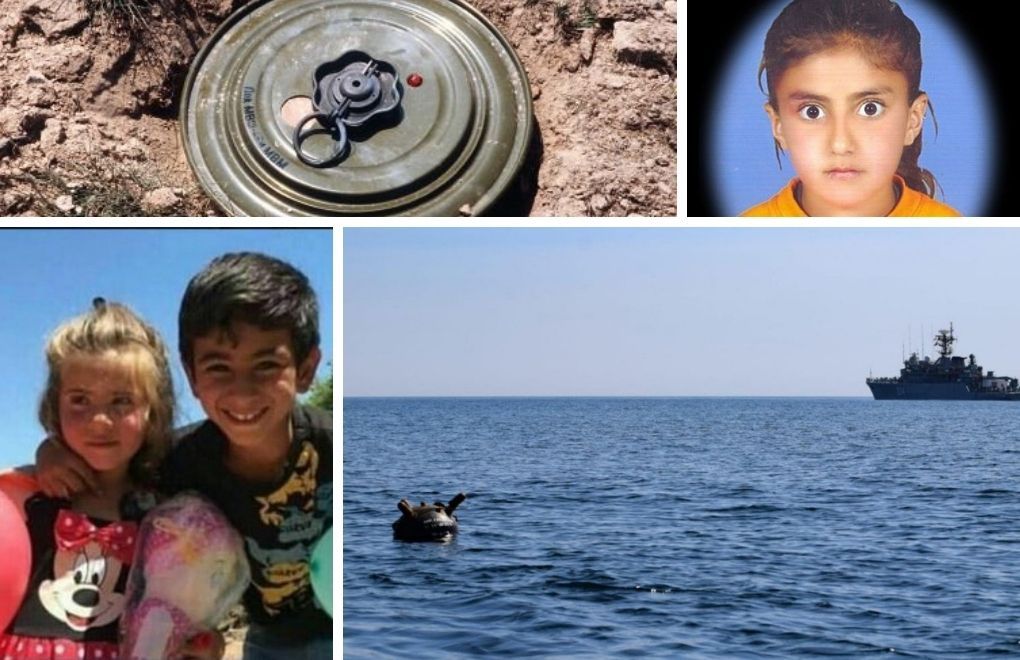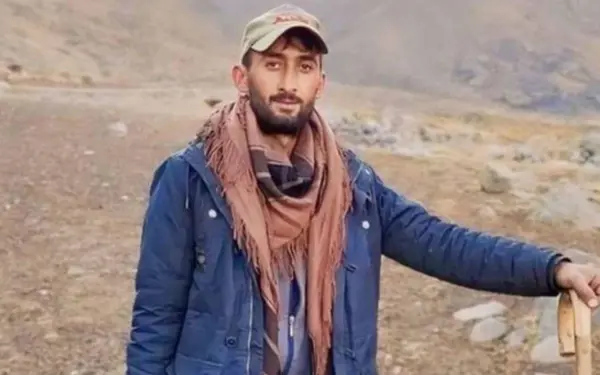* Source: United Nations (UN) & Anadolu Agency (AA)
Click to read the article in Turkish
While the mines laid on the Black Sea coast by Ukraine to stop Russia amid the ongoing war has been a recent debate in the world, losses of civilian lives have always been on the public agenda in Turkey.
CLICK - Two naval mines diffused in three days, minister responds to rumors blaming Ukraine
Yusuf Ata, Caner Sak, Nupelda-Ayaz Güloğlu and Ceylan Önkol were only some of the children who died in Turkey as a result of mine explosions.
CLICK - Lawyers call for demining as two more children killed by landmines in Şırnak
Yesterday, April 4, 2022, was the International Day for Mine Awareness and Assistance in Mine Action. On the occasion of this day, United Nations (UN) Secretary General António Guterres released a written statement and called for an end to the use of mines across the world.
Noting that this day "reminds us how far we have come in clearing the world of explosive remnants of war – and how far we still have to go," Guterres recalled that "exactly 30 years ago, civil society activists came together to launch the International Campaign to Ban Landmines".
The Convention was opened for signature within five years and, today, more than 160 states have signed the Convention, making landmines almost universally unacceptable, underlined the UN Secretary General further, briefly adding the following in his statement:
'Mine action is an investment in humanity'
"Over 55 million mines have been destroyed, more than 30 countries across the world have been declared mine-free, and casualties have dramatically decreased.
"But the world is still rife with millions of stockpiled landmines and over 50 countries remain contaminated with these abhorrent weapons.
"Mines, explosive remnants of war and improvised explosive devices continue to kill or injure thousands of people every year – many of whom are children.
"We must do more to protect people living under the shadow of explosive ordnance, from Syria, Somalia and Afghanistan to Myanmar, Cambodia, and beyond.
"In Ukraine, the legacy of a single month of war – in the form of unexploded ordnance, landmines, and cluster munitions – will take decades to tackle, threatening lives long after the guns fall silent.
"Already today, they restrict emergency humanitarian aid delivery and prevent people from fleeing to safety.
"I call on all states to accede to the Convention without delay. Permanent members of the Security Council in particular have a special responsibility.
"Mine action is an investment in humanity. It is a prerequisite for humanitarian relief efforts and the foundation of lasting peace and sustainable development.
"On this International Day, let us build on past progress and rid the world of the scourge of landmines once and for all."
'Nearly 2,500 losses of lives in 2020'
As reported by the state-run Anadolu Agency (AA), nearly 2 thousand 500 people lost their lives in the world due to mines in 2020.
Landmines and improvised mines targeting people may be found in roads, paths, fields, forests, deserts, country borders, the areas surrounding homes, inside schools and their vicinity as well as in places where people lead their daily lives. The highest number of mine-related casualties were in Afghanistan, Burkina Faso, Colombia, Iraq, Mali, Nigeria, Ukraine, Yemen.
Entering into force on March 1, 1999, the Convention on the Prohibition of the Use, Stockpiling, Production and Transfer of Anti-Personnel Mines and on their Destruction of 1997, known informally as the Ottawa Treaty, the Anti-Personnel Mine Ban Convention, or often simply the Mine Ban Treaty, aims at eliminating anti-personnel landmines around the world.
Naval mines
Seen in the Black Sea following the Russia-Ukraine war, naval mines are still preferred as weapons in naval warfare. According to the Geneva Call, a Switzerland-based NGO, the history of naval mines goes as far back as the 16th century, when the first mine prototypes were designed to protect the Chinese coasts from the pirates in the region.
While naval mines were used in several wars and conflicts such as the Vietnam War, Iran-Iraq War, the American Civil War and the civil war in Sri Lanka, they still pose a risk to lives of civilians. (AÖ/SD)









